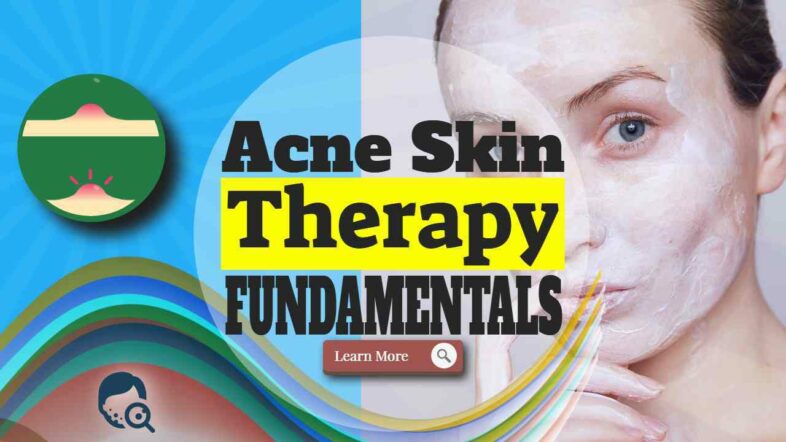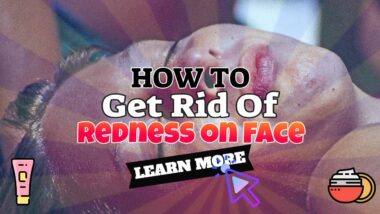Many factors influence acne skincare and therapy. Read on while we explain how to apply acne skin therapy fundamentals and monthly routines for your face and body. The first factor is the type of acne you have. Acne Vulgaris and Comedonal are the two forms of acne. Acne affects practically all teenagers in some way or another. Even if the intensity and number of pimples vary, they all require acne treatment at some point. Here are some choices to consider if you want to get rid of pimples and improve your skin.
Some acne eradication methods include the use of chemicals, while others rely on medical procedures and dermatological skills.
Correction of acne scarring is a common surgery performed by dermatologists. The acne cyst is removed with scissors or a scalpel in this approach. After that, the skin is detached from the follicular wall. If the cyst does not go away and is causing other difficulties, the dermatologist may decide to remove it.
Acne Treatments: Medical Procedures May Help Clear Skin
Another popular acne treatment option is a combination of surgery and anti-acne medication. Punch excision is the name given to this method of acne elimination. Making small incisions on acne lesions and removing them using little, sterilised tools is how this is done. Small blades, tiny scissors, and even tiny needles are commonly utilised in this technique. Topical antibiotics, which operate similarly to over-the-counter topical retinoic acid derivatives, are occasionally used to assist speed up the healing process and reduce scarring.
Natural and Pharmaceutical Methods
You can also choose a method of acne eradication that does not require the use of any equipment or medications. This entails the employment of both natural and pharmaceutical methods. The use of ice packs in the diseased area is one example. Ice reduces inflammation, which allows the nodule to heal faster. When pursuing this acne elimination approach, a visit to a dermatologist is also recommended, as some facial treatments can be rather painful if done without the supervision of an expert in acne skin therapy.
Whiteheads and Blackheads
Acne is a skin condition that can affect any region of your body. Whiteheads and blackheads can form anywhere, but they usually start on your face and migrate upward. The larger the pimple, the more difficult it is to remove. Although whiteheads and blackheads are two distinct types of blemishes, they are both more frequent than you might assume. A whitehead is usually caused by a deposit of dead skin cells that block a hair follicle, allowing a blackhead to grow. Getting to the root of your acne problem and working with a skincare specialist to determine the best treatment for your circumstances gives you the highest chance of success with acne eradication.
Lasers and Lights: Do They Work TO Treat Acne?
Acne treatments range from over-the-counter medications to laser acne treatment. Talking to your doctor or dermatologist about the best course of action for you and your skin issue is the best thing you can do. Laser treatments can help to dry out pimples, unclog pores, and reduce inflammation around the pimple in moderate to severe cases of acne and blemishes. Over-the-counter treatments can be used to eradicate germs in acne and prevent new pimples from emerging for those who are willing to wait months for results. Your final acne removal decision will be based on what you want to achieve aesthetically as well as what is most important to you as a person.
Skin Care Routine For Your Face
Skincare routines are designed for daily skin maintenance. These acne skin therapy routines include cleansing, toning, and moisturizing. Your skincare routine will be determined by the type of skin you have. It could be dry, oily, normal, or sensitive. There are different types of skincare products for each skin type.
How to Use Sunscreen to Best Effect
An important part of your skincare routine is sunscreen. The majority of sunscreen creams sold today contain some form of alcohol. If you are using an after-hours facial to stay young looking or if you have dry skin, using an alcohol-based sunscreen can actually stimulate skin cancer and cause dryness and cracking. An alcohol-based sunscreen can actually damage your skin’s natural pH balance and open up your skin’s pores. After you finish applying sunscreen, wash your face with a healthy skincare cleanser. Never use soap or perfume on your skin after applying sunscreen.
Sunscreen should always be the final step in your daily skincare routine no matter what type of skin you have, that works by absorbing UV rays on the sun. However, this step becomes difficult if you are using either a chemical sunscreen or a moisturizing cream. Chemical sunscreens must be applied to the skin immediately to be effective, so putting on a moisturizing cream after the chemical sunscreen will slow and hinder this. Also, moisturizers are not free of chemicals, as many ingredients in moisturizers have been proven to cause or worsen acne.
Never Skip the Use of Moisturizers
After cleansing, toning, and moisturizing is the finishing touch in your skin care routine. Many people skip moisturizers, thinking that it is too time-consuming to apply a moisturizer. However, applying a moisturizer gives your skin the moisture it needs and prevents dryness crepey skin and wrinkles, two things that damage healthy skin. Achieving healthy skin is not a quick fix. It takes time, but proper skin care can result in beautiful, glowing, younger-looking skin.
Acne Skin Therapy: Medical Procedures May Help Clear Skin
Your skincare routine should include the use of natural products to combat dryness and an overall lack of collagen and elastin. Ingredients such as kaolin, bentone gel, and plant-based oils and waxes work better than synthetic compounds for moisturizing dry skin. Also, substances such as the all-natural la Roche-Posay pure vitamin c, hyaluronic acid, and Wakame Extract work synergistically to improve the health and appearance of dry skin.
Things to Try When Acne Won’t Clear
If you have an oily skin type, there are many products that can make your skin look healthy and radiant. Ingredients such as zinc oxide, mica, and titanium dioxide are effective at preventing sebum production and provide antioxidants to help repair damage caused by overexposure to the sun. A good routine acne skin therapy will include cleansing with an oil-free moisturizer, then using a cleanser that contains one of these ingredients, possibly kaolin or wakame extract, for deep cleansing.
Acne Skin Therapy Dry Skincare Tips
For dry skin care, there are many products available, but the most complete line of products would include a serum, nighttime mask, and cleanser. The serum should contain serums such as Babassu, Maracuja, and Avocado. Nighttime masks such as the famous honey-and-garlic mask or the clay mask are often overlooked but can be very effective at moisturizing the face while protecting it from dirt and grime. Finally, a cleanser is often included in any skincare routine. Using a cleanser that includes both exfoliating beads and micro-beads, such as Neutrogena’s Cleanse & Clear, is optimal.
Above all, good skincare means following a regular routine. Once you stop applying skincare your problems will be very likely to return. That’s why the remaining sections of this article will now be devoted to helping you set up a monthly skincare routine to maintain your by now perfect complexion!
Monthly Skin Care Routine Tips For You
There are a lot of different skincare products on the market today. Choosing just one of them can be very difficult. That’s why it’s a good idea to form a routine to follow when purchasing any beauty product. A skincare routine is basically just a routine. It consists of steps that you take every day that help keep your skin healthy and youthful-looking. It also consists of products you buy in conjunction with your skincare routine.
Tip: Washing Your Face Before Applying Moisturizer!
One of the most important steps in your acne skin care routine is washing your face before applying moisturizer. The most effective skin care routine is to wash your face at least twice a day. Use a gentle soap and warm water. If you are using an after-hours facial, use a mild or clear liquid cleanser instead of a foaming cleanser. You don’t want to strip away the natural oils that are necessary to keep your skin moisturized throughout the day.
Another important step in your acne skin therapy routine is to apply a moisturizer. Many women skip this step and then wonder why they have “caked” faces and have “greasy” looking skin. If you apply a layer of moisturizer, it will help “seed” your skin to retain more moisture and keep your complexion even throughout the day. Many chemical sunscreen creams contain a “base” tanning ingredient such as titanium dioxide that can clog pores.
Exfoliate Regularly!
One of the most forgotten acne skin therapy routine steps is to exfoliate regularly.
Using a cleanser to remove dead skin cells keeps your face and neck looking fresh and young. Exfoliating twice a week can be done in the shower or on your hands and arms. Exfoliation removes dead skin cells that can clog pores and become inflamed and red. Once you exfoliate, follow up with a good moisturizer. Most cleansers and moisturizers have a moisturizing effect that makes them work better for your skin.
“Finally” – Use of Skin Toners
Finally, the final step in your monthly skincare routine is to use a toner. A toner removes make-up and debris from your face, removing the final layer of moisture that can cause your skin to look dull and flaky. It also tightens the pores and removes any dirt or oil that might be left behind. Toners are best used once a week during your main skincare routine. However, don’t be afraid to use a toner once a month, especially if you wash your face too often. It will tighten and tone your skin so that it looks flawless all day long.






